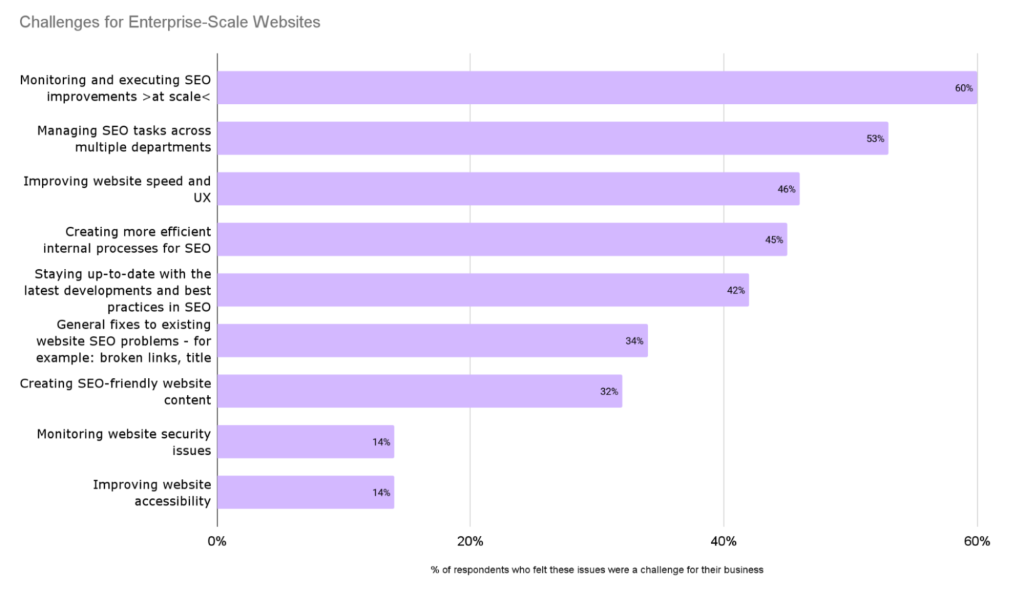
Common Causes of Lackluster Website Results
- Poor User Experience (UX):
- Description: Websites that are difficult to navigate, have slow loading times, or lack mobile responsiveness contribute to a subpar user experience.
- Example: A cluttered layout and confusing navigation can frustrate visitors, leading to high bounce rates.
- Outdated Content:
- Description: Stale or irrelevant content fails to engage visitors and hampers the website’s authority and relevance.
- Example: A blog that hasn’t been updated for months or product information that doesn’t reflect the latest features.
- Ineffective SEO Strategies:
- Description: Poor search engine optimization (SEO) practices result in low visibility on search engine results pages (SERPs).
- Example: Neglecting keyword optimization, meta tags, and backlinking can cause a website to rank poorly.
- Lack of Clear Call-to-Action (CTA):
- Description: A website without a compelling and clear call-to-action fails to guide visitors toward desired actions.
- Example: A landing page without a prominent “Sign Up” or “Contact Us” button may miss out on lead generation opportunities.
- Slow Loading Times:
- Description: Websites with sluggish loading times frustrate users and negatively impact search rankings.
- Example: Large image files, excessive use of plugins, or inadequate hosting can contribute to slow page loading.
- Security Concerns:
- Description: Websites lacking proper security measures are susceptible to cyber threats, potentially compromising user data and trust.
- Example: Not implementing SSL encryption can expose user information to security risks.
Key Ingredients for a Successful Website
- Compelling and Relevant Content:
- Description: Regularly update your website with valuable, relevant, and engaging content.
- Example: A company blog that offers industry insights, product updates, and helpful tips for users.
- Optimized SEO Strategies:
- Description: Implement effective SEO practices to enhance visibility on search engines.
- Example: Conducting keyword research, optimizing meta tags, and building quality backlinks to improve search rankings.
- Mobile Responsiveness:
- Description: Ensure that your website is optimized for seamless user experience across various devices.
- Example: Responsive design that adapts to different screen sizes, providing a consistent experience.
- Clear and Compelling CTAs:
- Description: Incorporate clear calls-to-action to guide users toward desired actions.
- Example: A homepage with a prominent “Get Started” button leading to a product or service sign-up page.
- Fast Loading Times:
- Description: Optimize website performance for quick loading times.
- Example: Compressing images, minimizing HTTP requests, and leveraging browser caching for efficient loading.
- Robust Security Measures:
- Description: Implement security protocols to protect user data and instill trust.
- Example: Utilizing SSL certificates for encrypted connections and regularly updating security measures.
Benefits of a Healthy Website
Enhanced User Trust
A well-maintained website builds trust with users, fostering a positive brand image.
Improved Search Engine Rankings
Websites following SEO best practices are more likely to rank higher on search engine results pages.
Increased User Engagement
Fresh, relevant content and a seamless user experience contribute to increased user engagement.
Higher Conversion Rates
Clear CTAs and an optimized user journey result in higher conversion rates and increased business outcomes.
Competitive Edge
A well-maintained website positions a business as a credible and competitive player in the market.
In conclusion, the success of a website is contingent on avoiding common pitfalls and embracing key principles for excellence. By addressing the causes of lackluster performance and incorporating essential elements, businesses can create a website that not only attracts visitors but also delivers meaningful results, contributing to overall business success. Decoding website success and results with help. Are you looking to make improvements to your website results or site itself? Talk to an expert and get help through digital consulting services.









